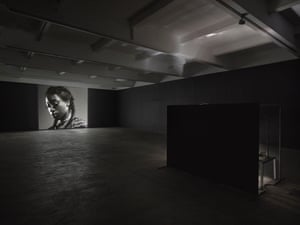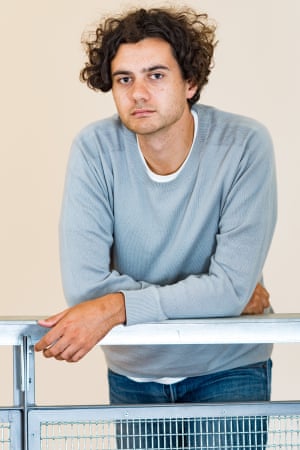Reconstructed prisons, racism and gender politics: Turner prize 2018 shortlist – in pictures
Tate Britain has announced the four nominees for this year’s Turner prize: Forensic Architecture, Naeem Mohaiemen, Charlotte Prodger and Luke Willis Thompson. See their work at Tate Britain from 25 September to 6 January
-
Forensic Architecture
An independent research team based at Goldsmiths University, Forensic Architecture are shortlisted for their participation in Documenta 14 and their solo exhibitions Counter Investigations: Forensic Architecture at the ICA in London, Forensic Architecture: Towards an Investigative Aesthetics at MACBA Barcelona, and Forensic Architecture: Towards an Investigative Aesthetics at MUAC Mexico. The jury praised the team for developing innovative methods for sourcing and visualising evidence relating to human rights abuses around the world that is used in courts of law as well as exhibitions of art and architecturePhotograph: Forensic Architecture 2016

-
Saydnaya prison, as reconstructed by Forensic Architecture using architectural and acoustic modellingPhotograph: Forensic Architecture, 2016

-
Counter Investigations: Forensic Architecture at the ICA, installation viewPhotograph: Mark Blower

-
Portrait of the Forensic Architecture team, 2018Photograph: Mark Blower

-
-
Naeem Mohaiemen
Shortlisted for his participation in Documenta 14 and the solo exhibition Naeem Mohaiemen: There Is No Last Man at MoMA PS1, New York. The jury was struck by the way Mohaiemen’s films explore post-colonial identity, migration, exile and refuge through narratives using fiction and social history that combine the traumas of history with his own family stories. In his films, installations and essays, Mohaiemen reflects on radical leftwing politics from around the world, investigating memories of political utopias and the legacies of colonialismPhotograph: Dimitris Parthimos

-
Still from Tripoli Cancelled, 2017, single channel film, by Naeem MohaiemenPhotograph: Dimitris Parthimos

-
Two Meetings and a Funeral, 2017, three-channel digital video installation, by Naeem MohaiemenPhotograph: Michael Nast

-
Portrait of Naeem MohaiemenPhotograph: Abeer Hoque

-
-
Charlotte Prodger
For her solo exhibition Bridgit/Stoneymollan Trail at Bergen Kunsthall. The jury praised Prodger for the nuanced way in which she deals with identity politics, particularly from a queer perspective. Using a range of technologies from old camcorders to iPhones, Prodger’s films build complex narratives exploring relationships between queer bodies, landscape, language, technology and timePhotograph: Courtesy of the artist, Koppe Astner, Glasgow and Hollybush Gardens, London

-
Bridgit, 2016, still, by Charlotte ProdgerPhotograph: Courtesy of the artist, Koppe Astner, Glasgow and Hollybush Gardens, London

-
Stoneymollan Trail, 2015 still, by Charlotte Prodger. Installation view, Bergen Kunsthall 2017Photograph: Thor Brodreskift/Courtesy of the artist, Koppe Astner, Glasgow and Hollybush Gardens, London

-
Portrait of Charlotte Prodger, 2017Photograph: Emile Holba

-
-
Luke Willis Thompson
For his solo exhibition Autoportrait at Chisenhale, London. The jury particularly noted the meditative nature of Willis Thompson’s black and white 35mm portrait of Diamond Reynolds. In this deeply affecting study of grief, the artist addresses representations of race and police violence. Working in film and performance, Willis Thompson investigates the treatment of minority communities and the way objects, places and people can be imbued with violencePhotograph: Andy Keate/Courtesy of the artist

-
Autoportrait, 2017, by Luke Willis Thompson. Installation view, Chisenhale Gallery, 2017Photograph: Andy Keate/Courtesy of the artist

-
Portrait of Luke Willis ThompsonPhotograph: Robert Cross/Image courtesy of the artist

